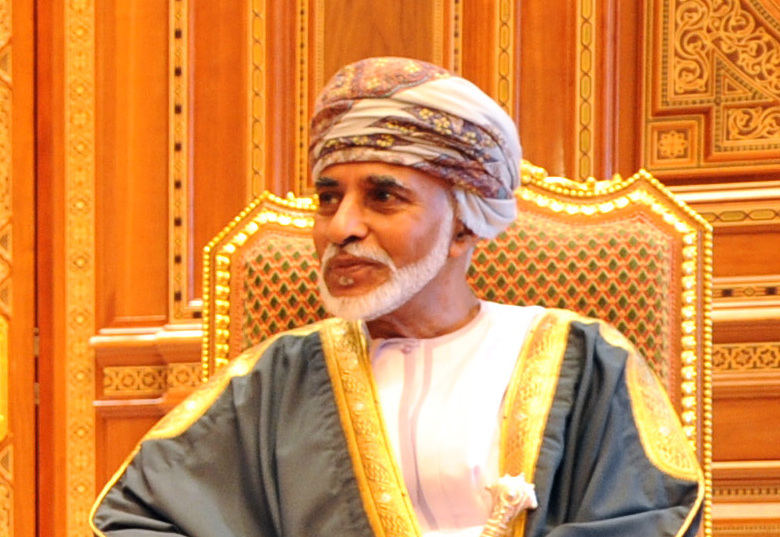
The Sultanate of Oman is a sleepy town of a country. It’s a hidden gem whose anonymity is a function of its peaceful, friendly nature. A modern and beautiful country, it is a tourist destination for those looking for a splendid locale off the beaten path. Yet it wasn’t always this way. Oman’s tale is one of incredible whirlwind development that has brought the country out from the backwaters. However, unlike its cosmopolitan neighbor, the UAE, Oman has protected its culture in a way that allows it to modernize without westernizing. Much of this success is thanks to the level-headed leadership of Sultan Qaboos bin Said al Said. One of the only absolute monarchs in the world, Sultan Qaboos has near full control of the country. After seizing control from his father in a bloodless coup in 1970, he put Oman’s oil money to good use: infrastructure and education. Despite his autocratic reign, the support from his people is robust and truly genuine. So it is with heartfelt emotion that Omanis look anxiously towards the future: the Sultan is sick.
For six months now, Sultan Qaboos has been receiving medical treatment in Germany. Very little information has been released about the nature of his illness. This ambiguity could be an effort to not needlessly worry citizens. However, it could also be reflective of a culture that shies away from confrontation with illness and death. First, he was said to be receiving “medical tests,” but as his absence has lengthened, the gravity of the issue has become clear. He gave a televised address on Oman’s National Day from Germany. His purpose was to allay rumor-driven fears that he was stricken with colon cancer, yet his frail appearance spoke louder than his words. No one is sure of his exact illness or the full extent of its severity, but Omanis are slowly coming to terms with the Sultan’s mortality.
His succession would not be so frightening a prospect if it weren’t for one critical point: he has no biological heirs. Only married for 3 years, he divorced without a child and has never remarried. (this is highly unusual in the Arab world and brings with it an unspoken assumption). He has not named an heir, either. Upon his death, his immediate family is to choose an heir. If they are unable to do so, due to infighting or otherwise, an envelope is to be opened which contains the Sultan’s selection for succession. This kind of hands-off approach is indicative of his humble nature, a proud talking point of many Omanis. While anyone will tell you of his creative succession process, it is taboo to discuss just whose name might be written in that envelope. The Sultan has no clear favorites and conjecture about potential candidates is considered disrespectful. No one has been cultivated to take his place, and it is uncertain if whoever does will be qualified or even come close to the kind of legitimacy Qaboos commands.
Even in Dhofar, a southern province with the most distinct culture of all Omani regions, support for the Sultan is incredibly high. Looking at Oman’s progress since 1970, it’s easy to see why. It is often cited that before Qaboos’ coup, there was a total of 6 miles of highway in Oman. Today, there is a robust (and well-manicured) highway system. Public education was nearly unheard of before 1970. Now, 98 percent of children attend elementary school and there is a 98 percent literacy rate among young adults. There are also several institutions of higher learning in Oman.
Qaboos was also highly strategic about foreign investment. Multinational companies flooded Oman with capital upon the discovery of oil and the installment of a promising new leader. However, by the late ‘80s, Qaboos instituted a program of “Omanization.” This program set reasonable, but meaningful, quotas for Omani personnel in all foreign operations. This served to combat youth unemployment without bloating the public sector. These programs, in part, helped Oman avoid the youth disillusionment that fed the wave of revolutions across the Middle East in 2011. Indeed, Oman only saw a few, very isolated protests. The Sultan made some small changes, and the unrest was largely forgotten.
Another often-lauded aspect of the Sultan’s influence is his friendly, ubiquitous neutrality in foreign affairs. Oman has no real enemies on the entire planet. Indeed, Oman has served as a quiet go-between for Iran and the United States in their nuclear talks. Qaboos also orchestrated the release of American hikers in Iran in 2010. Oman’s neutrality has served it well, allowing for economic development unobstructed by military conflict. Secretary of State John Kerry recently visited Qaboos in Germany to discuss both policy and personal affairs. This visit, with its personal undertones, may signal the critical nature of his illness.
As Omanis continue to wait patiently and prayerfully for news of the Sultan’s health, there is much at stake. If he is to pass soon, will his successor be able to maintain the kind of stability Oman has known for decades? With so much power at the monarch’s disposal, will he follow bin Said’s precedent of beneficence? Will Oman continue to prosper? For his citizens, the uncertainty is heavy. The lack of democracy has never been a pressing issue, but will the loss of a beloved leader bring a different reality to light?
